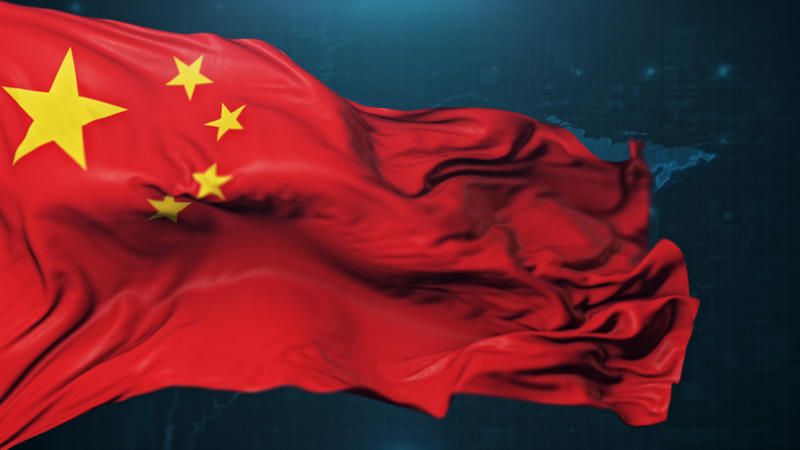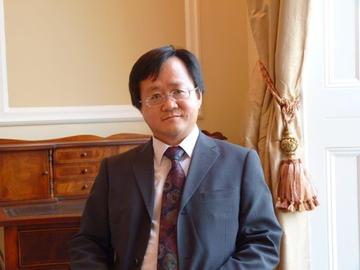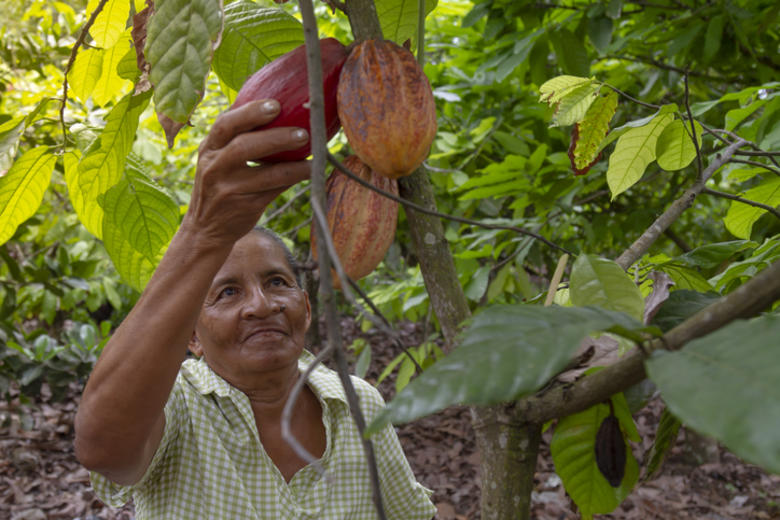CHINA TO RULE THE WORLD?

CHINA TO RULE THE WORLD?
One of 2024’s most important books answers the real questions about Chinese identity and Xi Jinping’s thought
Published: 22 January 2024
Author: Richard Lofthouse
Share this article
The Political Thought of Xi Jinping by Steve Tsang and Olivia Cheung (OUP, 9 January 2024)
One of the key political books of 2024, The Political Thought of Xi Jinping subjects to calm assessment what China really is under its leader, and what ‘Xi Jinping Thought’ is, and more importantly what it may mean for the years ahead.
Lead author Professor Steve Tsang (St Antony’s, 1981) generously spoke to QUAD to share some summary thoughts, including reflections on the recent Taiwanese elections and the security status of Taiwan.
But first the central subject of the book, ‘Xi Jinping Thought.’ The actual idea of a body of thought, formally inculcated across China since 2017, is a direct echo from ‘Mao Zedong Thought’, says Steve.
‘Xi does respect Mao – the only previous leader of China with whom he is willing to identify, of whom he is proud.’
‘But he is not imitating Mao and we should not underestimate that. Mao wanted to surpass the United Kingdom and catch up with America. Xi has far greater ambition than that, he wants to return China to the zenith of its global influence, seen historically.’
Asked what period of history Xi sees as China’s ‘zenith’ reference point, Tsang says there are many peaks in China’s past to which reference could be made, but that ‘there is history and there is history.’ The formal teaching of doctrinal Chinese history is the projection of a dogma; the real past is another thing entirely.

Tsang’s own view, and he prefaces his reply with an apology because it sounds like a convolution, is to ask how we define China and greatness. ‘The Han dynasty (206 BC-220 AD) was a high point of Chinese influence, but only if we are willing to agree that this was ‘China’. Another was the Yuan era, established by the fifth khagan-emperor of the Mongol Empire and lasted 1271-1368 – but of course that was a Mongolian incursion associated with Genghis Khan.
‘The Tang dynasty (618-907) was a very magnificent period but it was governed by a mixed Turkic and Han royal family. Was that China?’ Then there was the Qing dynasty (1664-1911) when China was a part of the Manchu Empire.
All such questions elicit messy answers as they typically do for most countries questioning their deep past.
There is no such messiness for Xi Jinping Thought, which for example says that by 2049, the Centenary of Communist rule in China, Taiwan must be part of China, if not peacefully then by whatever means necessary.
Xi has also said that the Chinese armed forces must achieve the capability for taking Taiwan by force, by 2027. Does that mean that we have three years left before a disastrous conflagration?
‘Unlikely’, Tsang says. ‘There are two scenarios. One is that Taiwan changes its name and provokes a war in short order. That is very unlikely for now. The second is that Beijing chooses exactly when and how it takes Taiwan, aiming at maximum success at the lowest cost – in that case a short term timeline is highy unlikely.’
He continues by noting that China is by some margin the greatest industrial power on earth. They can build the necessary military hardware by 2027. ‘But the training and combined arms operation necessary to mount a large amphibious assault across the Taiwan Strait, which is more treacherous than the English Channel [and at its narrowest is 81 miles, ed], and also face perhaps not a static defence but a dynamic US armed forces defence, that is something else.’
Continuing the comparison to the English Channel, he notes that it took the Allied Powers two whole years to prepare for D-Day and that it was by comparison with Taiwan rather rudimentary. Everything suggests a decade or more to get ready, he says.
Tsang, who is Director of the China Institute at SOAS, University of London, is patient in answering our questions and possibly weary of being asked about Taiwan in this manner, by the Western commentariat in a rush to achieve a notional framework for Chinese actions.

But that general public anxiety about the potential for a dreadful war underscores the purpose of this book, a book he has written with Olivia Cheung, also formerly of Oxford University (St Antony’s, 2012) where she was a Rhodes Scholar, today a Research Fellow of the China Institute at SOAS University of London, a colleague of Tsang’s.
‘The book is a sober analysis. It seeks to explain. Our intended audience is anyone interested in China, but in particular policy makers and media analysts. It is critical that there is understanding, otherwise there will be misunderstanding.’
‘Xi Jinping Thought’ was officially unveiled in 2017 and today forms a hegemonic state ideology. Xi meanwhile is effectively leader for life.
The broad goal of the ‘China Dream’ is to make China great again, to restore China to the heights of its power. The book de-mystifies the ideas by tethering them in policies.
At the centre, says Tsang, is a vision of a single people, a single state, a single party and a single leader. The book shares a graph depicting the total number of persons sanctioned by the Central Commission for Discipline Inspection between 2012-21, and it climbs steeply over that decade, with nearly four million sanctioned since Xi came to power. The most sanctioned in a single year was 621,000 in 2021, the most recent year for which data is known. There is every reason to think that these figures have continued to rise since. It is a graphic illustration of an unapologetic autocracy in action.
In another table, Tsang and Cheung carefully appraise the permanent working groups of the Chinese Communist Party as of 2021. They list 24 in total, many of them pre-existing but renamed, some of them new under Xi.
The eleven new ones under Xi, since he came to power in 2013, include a State Security Commission and a Central Commission for Integrated Military and Civil Development. The last involves the effective militarisation of civil society, a classic and chilling development in totalitarian statehood.
The authors go into considerable further detail about what such committees mean, and the fact that some of the reforms within the renaming process are not as simple as they may appear to outsiders – calculated in some instances for instance to cut back the power of certain individuals.
Complete state control of the media is already a reality, but as in Russia will compete with the inherent instability of new digital applications and technologies.
In the broader matter of wealth and income disparity, there is a balancing act that frankly any Western politician would recognise, between a prevailing, rampant inequality and the need to provide better for the poorest. While there is a nod to the Communist past, Xi ‘does not seek to abolish class differences or create an egalitarian society…only to prevent or redress excessive social polarization.’
Also chiming with certain Western discussions, often on the rightwing of politics, Xi worries about laziness and ‘welfarism’, and makes clear that government cannot achieve everything.
In his own decision to use the centenary of Chinese Communism as a conceptual tool – 1949-2049 – Xi has deliberately sought to continue the optics of Communism much as Putin has sought to appeal to elderly Ukrainains by restoring statues of Lenin. In both cases it is a communications tool plus some nostalgia, a point of difference with the West rather than Marxism it may appear to be.
What this all means is brought into relief by some stark statistics: in 2019, China had a population of 560 million people whose monthly income was less than US$145, while at the other extreme 31.1 million earned more than US$14,500 per month, sometimes far more.
Binding this together on the international stage is a tension laden universalism that sees the Sino-Centric world as the best world for the whole world, while nominally seeming to endorse the UN-sanctioned, ‘rules based order.’
Xi Jinping Thought contends that China has never been imperialist, and as such his approach re-renders the pre-modern idea of tianxia, in which ‘China would benevolently engage with the rest of the world, spreading civilisation, knowledge and material benefits.’
In practice it cannot be like that. In fact, ‘It is self-centered, hierarchical, illiberal, and coercive but is presented in a language of altruism, moralism and inclusiveness.’
As the recent Taiwanese election shows, many other nations are calling out this approach. Steve says, ‘China tried very hard to influence the election but the Taiwanese population ignored them. They chose wisely in geo-political terms, with the Democratic Progressive Party (DPP) holding onto the presidency but losing control of the parliament. A low risk strategy. But the Taiwanese system is similar to the French system, where the President cannot do whatever he likes and where the Premier may not command majority, so in that sense, the sense of domestic governance, the outcome for Taiwan is poor.'
The Political Thought of Xi Jinping by Steve Tsang and Olivia Cheung (OUP, 9 January 2024)
Lead image by Getty Images.
Author portraits: credit OUP.















